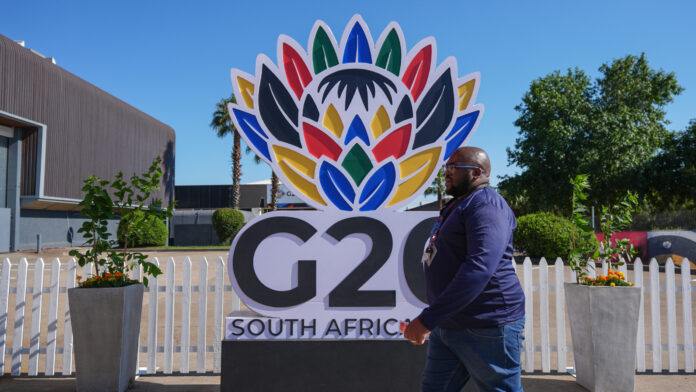
A statement from the Junior Mining Council (JMC)
WITH the G20 Leaders’ Summit taking place in Johannesburg on 22–23 November 2025, South Africa is hosting the world at a pivotal geopolitical moment. As the current G20 President for the 2024/25 cycle, South Africa has placed inclusion, resilience and sustainable development at the centre of the agenda. This is an orientation that dovetails with the needs of the junior mining ecosystem: stable rules, competitive capital, resilient supply chains and community-centred growth.
Global politics are already shaping the operating climate. The Presidency’s initiative to table a G20 wealth-inequality taskforce signals a stronger push for equitable value sharing across critical-mineral chains. This is a laudable commitment and an opening for juniors that can tackle the triple threat of poverty, unemployment and the high levels of inequality facing the nation. The junior miners can equally shape local beneficiation and contribute towards building resilient communities.
At the same time, the critical minerals super-cycle remains governed by geopolitics: export controls, “friend-shoring,” and industrial policies in major economies. The demand for minerals shaping the transition from fossils to cleaner, affordable energy is intact, but price and offtake certainty remains uneven. In our formal comments on the Draft Mineral Resources Development Bill, 2025, the JMC warned that without explicit recognition of the junior mining sector and bespoke regulatory support, South Africa will continue losing these vital players. At a time of heightened geopolitical and commodity-market uncertainty, deliberate legislative and policy interventions are now essential to equip junior miners to build projects that are resilient across a range of future scenarios.
Domestically, the policy environment is moving, and largely in ways that can unlock responsible junior activity if implemented predictably. While the various policy and legal instruments still require several changes, we note the following as being key towards amplifying the juniors:
- The MRDB: Published for public comment on 20 May 2025, the draft formalises small-scale and artisanal mining permits, tightens processing timeframes and clarifies custodianship over certain historic residues. For juniors, this could reduce licensing ambiguity and help bankability—so long as final clauses preserve regulatory certainty and transparent cadastre processes.
Mine Health and Safety regime: Amendments to the MHSA regulations (28 March 2025) update machinery/winders requirements, and all mining employers must implement a Change Management Code of Practice by 1 October 2025—a compliance milestone relevant to every junior mine start-up. These reforms will support investor confidence but require early budgeting and competent resourcing.
- Climate Change Act, 2024 (in force from March 2025): The phased rollout of carbon budgets and sectoral targets will influence mine design, power choices and closure liabilities. Juniors that integrate low-carbon power, efficiency and credible transition plans will be better positioned for offtake and concessional finance.
- Critical Minerals and Metals Strategy (2025): Government’s emphasis on diversified supply chains and local value addition aligns with JMC’s call for practical incentives—permitting service standards, grid access solutions, and catalytic infrastructure. This will ensure that juniors can capture the beneficiation opportunity rather than see it offshored.
The JMC’s position ahead of the Summit:
- Back an African-led G20 framework for responsible, transparent critical-minerals value chains that rewards early-stage exploration and local processing.
- Prioritise regulatory certainty at home: finalise the MRDB with clear timelines, modern cadastre and predictable environmental interfaces.
- Mainstream just-transition finance for juniors—credit enhancements, offtake guarantees and blended finance that recognise the junior miners outsized socioeconomic multipliers.
- Treat safety and climate compliance as competitive variables, not overheads.
Junior miners are nation-building entrepreneurs. With coherent geopolitics abroad and dependable policy at home, they can turn South Africa’s geological advantage into inclusive, future-proof growth. Addressing the concerns for the junior miners across the African continent will certainly translate the G20, 2025 theme into a reality – solidarity, equality and sustainability.








